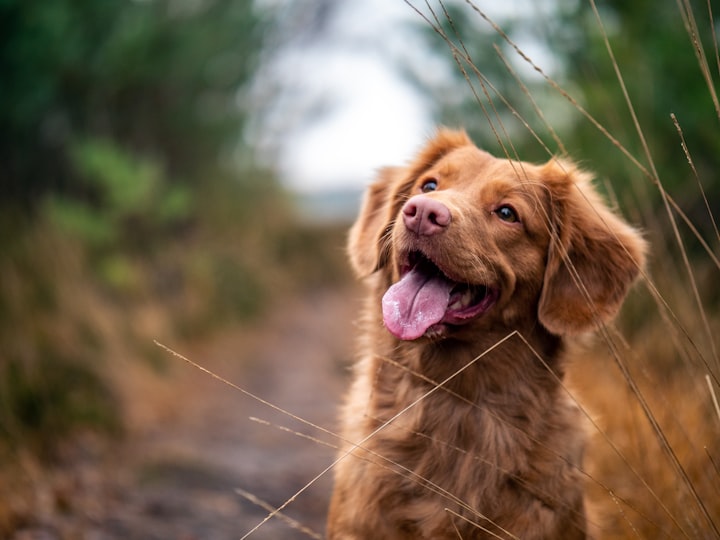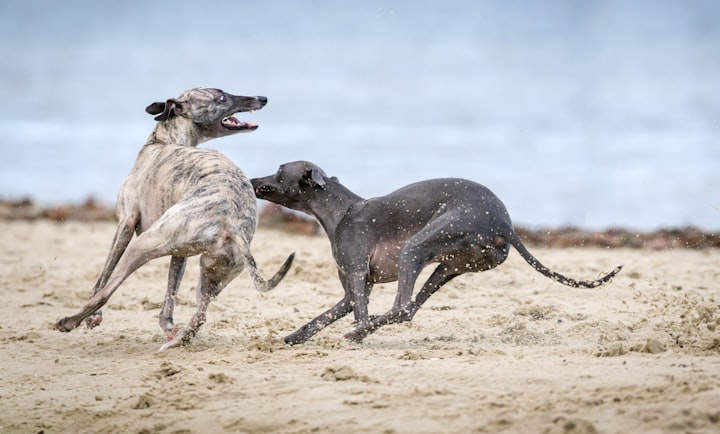The Key to a Good Relationship With Your Dog
Why picking the right dog is as important as picking the right spouse.

1. Make sure you've picked the right one
Much like picking out a romantic partner, choosing a canine partner includes a lot of self awareness. Whether you are adopting or rescuing a dog, or buying from a reputable breeder, it is essential that you are picking a breed or individual that matches your lifestyle, personality, and wants/needs for your dog.
This means that a German Shepherd, as cute as they are, may not be the best pick for you.
When choosing a dog, make sure you're choosing for the life you have now, not the life you aspire to have. Meaning, if you aspire to run three times a day, getting a high energy dog doesn't necessarily mean they're going to encourage you to do that - it just means you'll end up with a dog that doesn't match your lifestyle.
Dog breeds are genetically diverse for a reason; each one was carefully crafted for a specific job, and while purebred dogs are taking a backseat and mutts are pushing forwards in popularity, the genetic traits still play important roles. A husky mix will more likely than not have the energy level and stubbornness of a purebred husky.
Think about what a husky was bred to do for generations, what each pedigree strived for: running hundreds of miles, pulling weight. If you're looking for a companion who only wants one or two walks a day, a husky will not be happy with you, and you won't be happy with a husky!
2. Make sure you're giving them what they need
This goes along with what was mentioned in the previous bullet. Every dog has different needs, which vary by breed or breed mix, and then vary more by individual.
You must be willing to commit to thorough training sessions (not just as a puppy but through the dog's entire life), regularly occuring and surprise vet bills, high quality food, proper socialization, and exercising your dog. Even the smallest, most low-key dogs are not exactly low-key at all. If you are looking for the quiet, easy-going companionship or a cat or rabbit, get a cat or rabbit!
3. Keep them healthy
The recent romantization of "chonky" dogs is killing them. Sorry to say, but your dog does not want to be fat!
Dogs want to run and play, and extra weight ontop of them prevents them from doing this to the fullest. Dog obesity can also have varying affects on different dog breeds which shorten their lifespan and can cause them unimaginable pain.
Think of the corgi with its short legs and long body. They were bred to herd cattle and sheep for hours on end - not to lounge around eating all day! Extra weight on low back breeds like corgis can cause issues in their knees, hips, and spines, which are already prone to health problems.
Now, consider a pug, French bulldog, English bulldog, or any other brachy breed. You may notice they struggle to breath due to their flat faces. Now, imagine how hard it must be for them to breath when they're obese!
4. Don't be afraid to admit your dog isn't perfect
No one wants to admit their pup isn't the definition of a perfect angel. Much like humans, though, dogs are commonly flawed in many ways.
Once again varying by breed and individual, some dogs may be prone to dog aggression, human aggression, or have a higher prey drive than others. These are not inherently bad traits! The notion that a dog that is "aggressive" makes them a "bad dog" is false. While we can't necessarily control what's in a dog's genetics, we can help regulate with proper training and socialization.
Take my mutt, for example. Jameson was a street dog in Tennesee. Due to his breed mix, Jameson exhibits anxiety-driven dog aggression. He would never attack and kill another dog, but I also would not expect him to get along with a strange dog immediatly. And that's okay! We socialize Jameson as much as we can by introducing him to dogs and rewarding good behavior. Unfortunately, it is something he's never grown out of. We love him anyway and, for his sake, don't typically bring him out to places we know might trigger his anxiety.
As aforementioned, it's okay to admit that your dog has some perceived negative traits. Its better for them, you, and others that you accept this and do what you can to keep everyone safe and happy. Your dog will not hate you for loving them despite their flaws!
5. Just make sure you're loving them as best as you can
For the most part, owning and loving a dog comes naturally for people who commit themselves to it. The perfect dog owner is someone who knows and listens to their dog's wants and needs.
Do not pick a dog not based on aesthetics or looks, pick a dog because they'll be a perfect match! Do not be afraid to wait on your perfect pup, either. If a husky is your dream dog but you're not ready to commit to one just yet, there's no shame in waiting until you are!
Dogs are wonderful, rewarding companions. They give us endless happiness, and its only fair we give the same back.





Comments
There are no comments for this story
Be the first to respond and start the conversation.